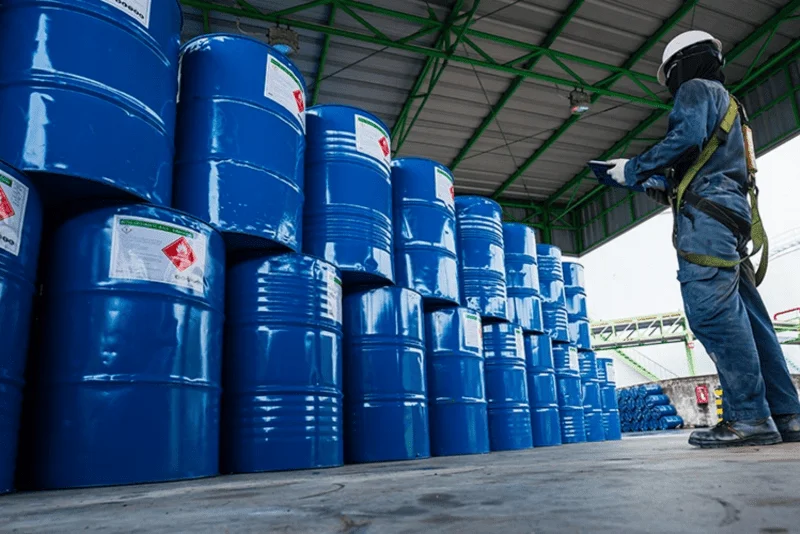Look at our Waste Management Services Today
Get a quote

What is Waste Management?
Waste management includes many activities to manage waste. Whether it is food waste collection, other municipal solid waste, healthcare wastes and clinical waste, mixed recycling (including dry mixed recycling), plastic waste, and many more recycling and waste, we will explain different management strategies and why producer responsibility makes you accountable for your business waste. The whole process of recycling and waste management includes:
Collection
- Transport (with different waste carrier options)
- Waste Sorting
- Treatment
- Disposal
This also includes the special issue monitoring and regulation of waste management through all of these processes, including economic mechanisms, technologies, and waste-related laws and special issue editorial board legislation.
Types of Waste Management
Different waste management and disposal types depend on waste, which could be solid wastes, liquid, or gaseous waste. The different types of waste management and disposal can also be split into sub-categories!
Operating a waste management service and arranging correct management strategies can be relatively expensive when considering all of the integrated systems that need to be effectively managed, socially supported, and sustainably sound. The integrated systems include techno-economic mechanisms, but there is also an involved export and import control and waste generation disposal facilities.
Different types of waste:
- Domestic
- Commercial
- Industrial
- Agricultural
- Biomedical
- Hazardous
Looking for Waste Management Solutions?
Get a quote

Domestic Waste
Any waste collection from households is known as domestic waste, which can include any waste in a home from food waste in cooking, chemical cleaning products, and other household products and activities that cause municipal waste. The government provides waste collection services to standard homes over businesses, so no personal subscriptions have to be made.
Commercial Waste
This is any business waste from commercial sites such as schools, shops, restaurants, and offices. There is often a lot more waste generation than standard domestic waste, so a larger waste collection is often needed for this municipal solid waste and liquid waste, as well as mixed recycling (and we can help you with all of it!).
Industrial Waste
As the name suggests, this is waste coming from industries such as factories. Unfortunately, there are still many companies worldwide that dump all of their illegal waste into the sea and rivers, creating waste streams in our environment. This negative waste facilities management and poor producer responsibility causes a lot of pollution and other negative environmental impacts. Luckily, we are here to help you manage your waste effectively and sustainably!
Industries that have high waste generation, some of which can be hazardous, include food processing, sugar mills, paper and pulp, metallurgical, pharmaceutical, and chemical production industries.
Agricultural Waste
Just like industrial waste, this has an obvious meaning. Animal waste, husks, and weeds are common examples of the vast amount of waste produced in agricultural fields.
Luckily, lots of agricultural waste is reused (also known as waste to energy waste management) for other things such as manure used as fertilizer and straw as fodder. Some agricultural industries that have high waste generation and should have correct commercial waste management are rice mills, tobacco factories, and tea production.
There are different types of waste to energy waste management:
Gasification consists of the biomass fuel created with the chemical decomposition caused by the deterioration of agricultural matter. It can be used as a sustainable energy source, which technically means it isn’t waste!
Biogas production is similar to gasification because the organic matter from agricultural waste produces a gas known as biogas containing methane and carbon dioxide, which can provide gas from powering homes. Any byproduct of this is usually a slurry that can be used as fertilizer.
Waste Management for your Business
Get a quote
Biomedical Waste
This waste generation often comes from healthcare wastes such as medical testing through the diagnosis and treatment stages and biological research activities. Bio-medical waste cannot be mixed with other types of waste, so correct waste management is essential, not affecting human health or the environment. The clinical waste is segregated into separate labelled containers before storage, transportation, treatment and disposal. There are even specific laws put in place by the government to ensure proper waste management takes place.
Biomedical waste can also be included under hazardous waste due to potential infectious properties. Human tissue from surgeries, hypodermic needles, and used bandages all count as biomedical waste and can be contagious and unsafe if incorrect waste management is performed.
Hazardous Waste
This is specifically waste that is dangerous to human health and the environment. To test the danger of waste, characteristics are tested, including; toxicity, reactivity, ignitability and corrosivity.
However, within the umbrella of hazardous wastes, there are sub-categories to explore:
- Toxic– this is waste that is poisonous even in small amounts, both carcinogenic and mutagenic, including heavy metals and pesticides.
- Reactive – this tends to react with air or water and can be unstable with heat or shock. This can generate toxic gases or even explode sometimes. Examples of this include nitroglycerin and gunpowder.
- Ignitable – this waste can burn at low temperatures, posing a risk to people nearby when they can spontaneously combust while being transported or disposed of. This can include alcohol, paint thinners, and gasoline.
- Corrosive – this destroys materials, including living tissue such as people’s skin! Chemical reactions can happen with corrosive waste such as acids and bases.
Hazardous waste can be found in all kinds of companies. Chemical manufacturing companies, paper mills, smelters, and petroleum refineries should all have appropriate hazardous waste management services. Plastic industries often use chemicals for several processes, which can quickly become a health hazard as well as any plastic waste causing big environmental impacts.
PCBs (Polychlorinated biphenyls) are resistant to fire. They do not conduct electricity very well, which makes them excellent materials for several industrial purposes. Rainwater can wash PCBs out of disposal areas in dumps and landfills, thus contaminating the water.
In terms of domestic hazardous waste, the most dangerous things in our home can be solvents, cleaning products and car care products.
You can contact us about any hazardous waste collection concerns you have, and we can help you! Alternatively, you can access articles about everything you should know about hazardous waste disposal.

Why Is Environmental Waste Management Important?
You may have noticed how often sustainability is mentioned in this article because effective waste management can have a large impact factor and change everything for our planet. When waste isn’t managed correctly, it can be dangerous for human health and highly damaging to our environment. By improving waste management services, we can also move forward in the goal of achieving a circular economy.
Safe, correct waste management ensures everything throughout the process of disposing of the waste is responsible. Our amount of waste generated is increasing as our population grows due to more consumption. The urban economy is robust, which means more construction and demolition as well as manufacturing, all resulting in more waste. All of this often ends up in landfills where waste liquids can leak into our soil and water.
More examples of why environmental waste management is essential:
- Protecting public health – waste management, when completed ineffectively, can severely impact our health. Toxic waste getting into our soil and water can lead to us digesting things that harm us, such as lead poisoning if heavy metals absorb into the ground where food could later be planted nearby.
- Preserving wildlife – just like with us, animals can also be harmed if mishandled waste got into soil or water and they try to consume it. You are probably aware of all the plastic in the ocean already. Researchers have recently discovered that 100% of degraded plastic in the stomachs of turtle hatchlings in their study. Habitat destruction also occurs, decimating the wildlife population, like oil spills in the ocean.
- Promoting physical health – excluding health conditions that can occur over time due to bad waste management, consider the immediate effects of potentially treading on glass, metals, or other debris from poor waste management.
How Can Inspire Waste Management Help You?
At Inspire Waste Management, we comply with every law in the book regarding correct waste and recycling management. Our experts have years of experience in the recycling and waste industry. We help advise you on the most effective way to store and dispose of your waste and offer our services to help with those needs.
We can help you with waste management strategies anywhere in the UK and get the service of your choice in place within seven working days. Budgeting will be straightforward with our flat-rate fees and no hidden costs.
Waste Management by IWM





